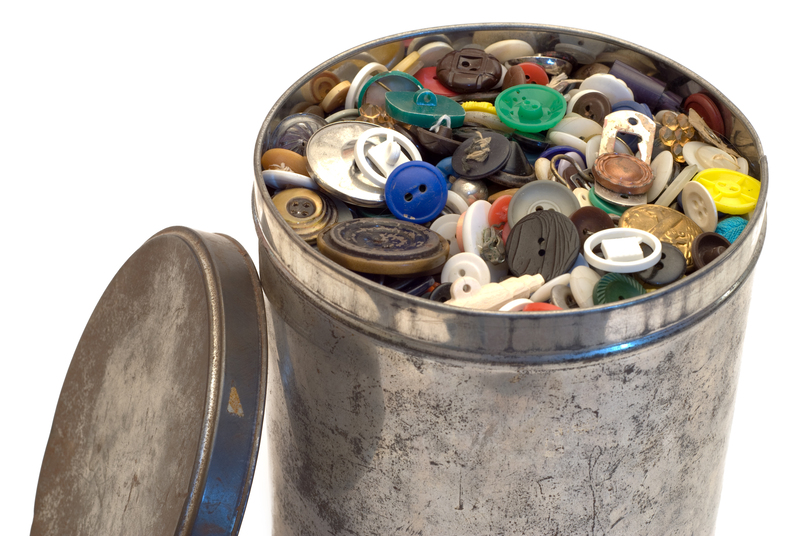Eco-Friendly Recycling Tips
Posted on 23/03/2025
Recycling has become a crucial part of our daily lives and for good reason. As we face growing environmental challenges such as climate change, pollution, and the depletion of natural resources, adopting eco-friendly recycling practices is more essential than ever. This article will delve into a variety of recycling tips that can help you reduce waste and live a more sustainable lifestyle.
Understanding the Basics of Recycling
Before diving into specific tips, it's important to understand what recycling entails. Recycling is the process of converting waste materials into reusable objects to prevent waste, conserve natural resources, and reduce pollution. Commonly recycled materials include paper, cardboard, glass, aluminum, and certain types of plastic. Not all materials are recyclable, and some require special handling to be processed correctly.

Smart Sorting: Separate Your Recyclables
One of the simplest and most effective ways to manage your recyclables is by sorting them correctly. This typically involves having multiple bins for different types of waste: one for paper and cardboard, one for glass, one for metals, and another for plastics. Some areas also provide special bins for organic waste, including food scraps and yard trimmings.
To ensure you are sorting correctly, consult your local recycling guidelines, as they can vary considerably. Incorrect sorting can lead to contamination, making entire batches of recyclables useless.
Clean Your Recyclables
Contaminants such as leftover food and liquids can spoil entire batches of recyclable materials. Therefore, it's crucial to rinse out containers before placing them in the recycling bin. Use water to clean cans, bottles, and jars, ensuring they are free of residue.
Minimize Plastic Use
Plastic is one of the most pervasive pollutants because it takes hundreds of years to decompose. Opt for biodegradable or reusable alternatives whenever possible. For instance, use cloth bags instead of plastic ones, and choose glass or stainless steel containers over plastic ones. Even small changes can make a big impact over time.
Repurpose and Upcycle
Recycling doesn't always mean sending items to a recycling facility. You can also repurpose or upcycle materials to give them a new lease on life. An old jar can become a storage container, or a worn-out T-shirt can be cut up and used as cleaning rags. Upcycling not only reduces waste but also fosters creativity and resourcefulness.
Composting: Nature's Way of Recycling
Organic waste such as fruit and vegetable scraps, coffee grounds, and yard waste can be composted to produce nutrient-rich soil. Composting reduces the amount of waste sent to landfills and lowers methane emissions. Many communities offer composting programs, and small compost bins are available for those who live in apartments or have limited space.
Be Mindful of E-Waste
Electronic waste (e-waste) is a growing concern due to the rapid pace of technological advancement. Items such as old computers, smartphones, and batteries contain hazardous materials and should never be thrown in the regular trash. Many electronic retailers and local recycling centers offer e-waste recycling programs. Whenever possible, opt for repairing outdated electronics rather than replacing them.
Recycling Special Items
Certain items require special recycling methods. For instance, hazardous materials like paints, pesticides, and certain chemicals should never be disposed of with regular waste. Many communities have designated drop-off points for hazardous waste. Similarly, textiles and clothing can often be recycled or donated to charity organizations rather than thrown away.
Support Products Made from Recycled Materials
Purchasing products made from recycled materials helps create a market for these items and supports the recycling industry. Look for products labeled as post-consumer recycled (PCR) content. This indicates that the material has been used by a consumer, recycled, and then used in a new product.
Educational Initiatives and Advocacy
Being informed is the first step towards effective recycling. Take the time to educate yourself and others about recycling practices and the impact of waste. Schools, workplaces, and community centers often have resources and programs to promote recycling awareness. Furthermore, advocate for improved recycling programs and facilities within your community to make it easier for everyone to participate.
Green Consumer Choices
Your purchasing decisions play a significant role in waste generation. Opt for products with minimal or recyclable packaging and support companies with sustainable practices. Bulk buying reduces packaging waste, while selecting items with longer lifespans cuts down on future waste.
Energy Efficiency: Double the Impact
Energy conservation goes hand-in-hand with waste reduction. Using energy-efficient appliances and light bulbs, driving less, and insulating your home properly can lower your carbon footprint. Recycling aluminum cans, for instance, saves 95% of the energy required to produce them from raw materials.
The Role of Local Government and Businesses
Effective recycling programs often rely on strong policies and infrastructure supported by local governments and businesses. Advocate for community-wide initiatives, better recycling facilities, and educational programs to ensure that everyone has the information and resources they need. Support businesses that prioritize sustainability and responsible waste management practices.

The Future of Recycling
The landscape of recycling is constantly evolving with technological advancements and increased awareness. Methods such as chemical recycling, which can handle previously non-recyclable plastics, and innovations in sorting technology promise to make recycling more efficient. Staying informed about these developments can help you adapt and continue to improve your recycling efforts.
Conclusion
Adopting eco-friendly recycling tips is a practical way to contribute to environmental sustainability. By understanding the basics, sorting and cleaning your recyclables, minimizing plastic use, repurposing items, composting, and properly disposing of e-waste and special items, you can make a significant impact. Additionally, supporting products made from recycled materials, advocating for better recycling programs, and making mindful consumer choices all contribute to a greener future. The collective effort of individuals, businesses, and governments can create a more sustainable world for future generations.
Latest Posts
Cutting Down Waste in the Workplace


 office@benandjerry.org.uk
office@benandjerry.org.uk https://benandjerry.org.uk/
https://benandjerry.org.uk/

